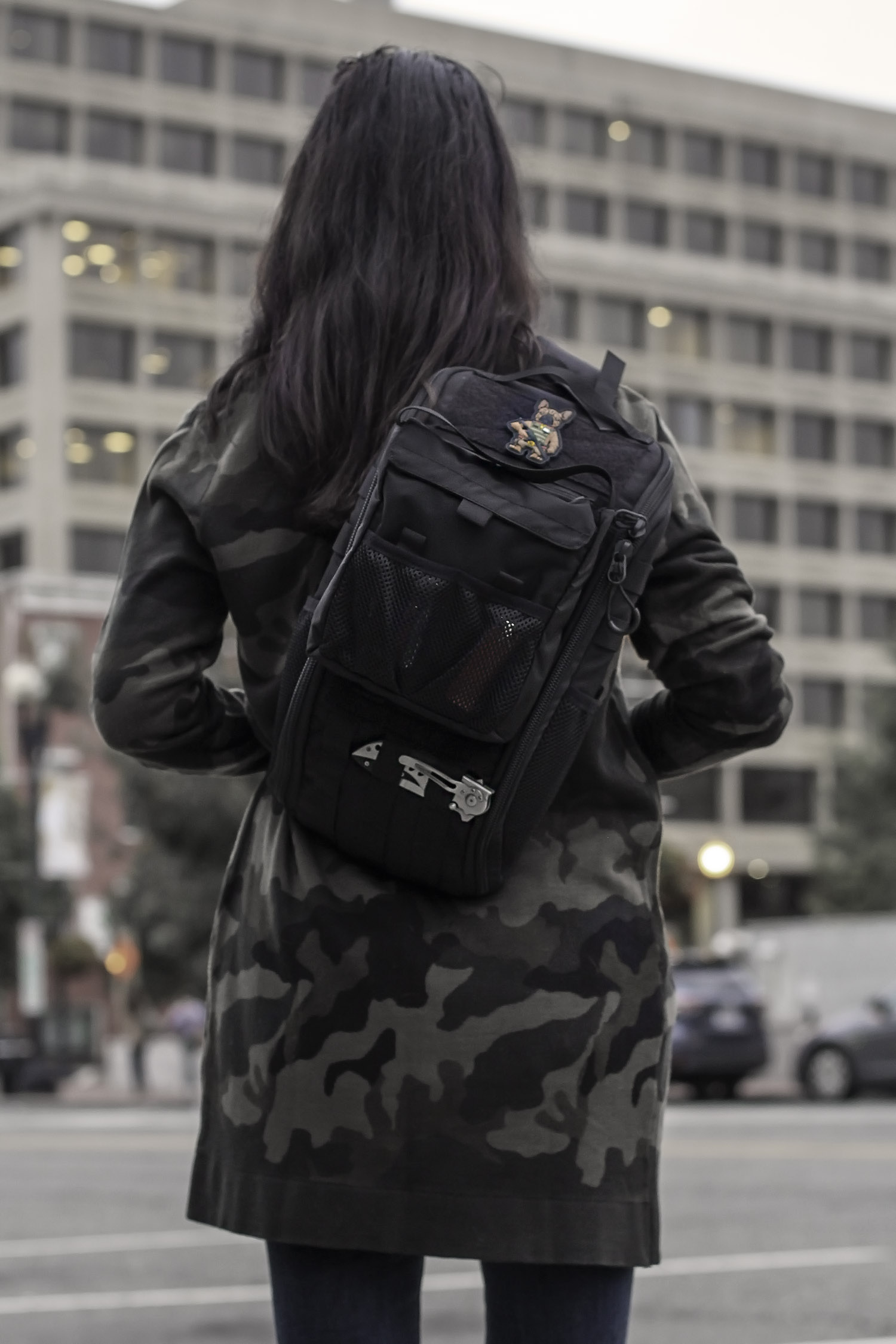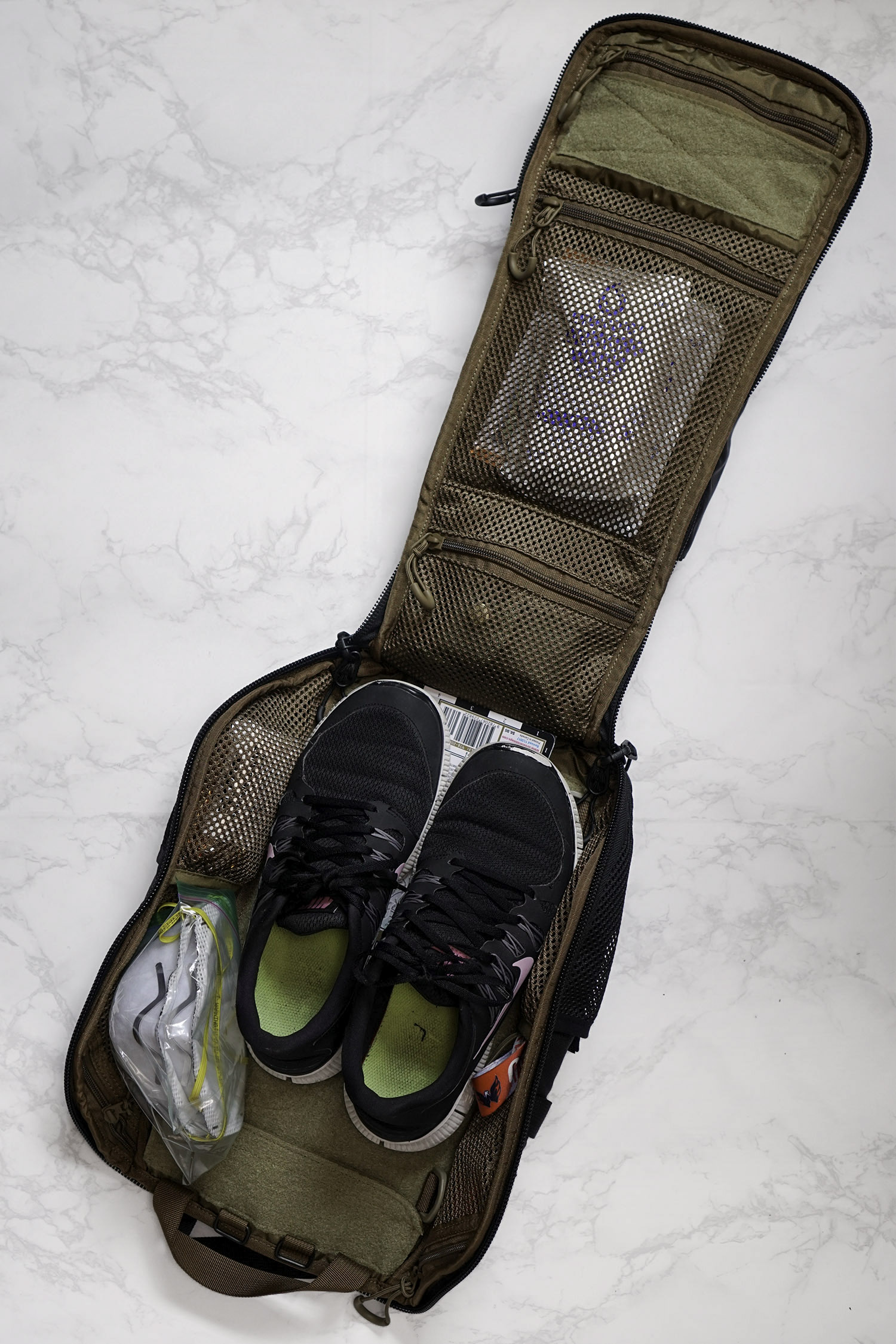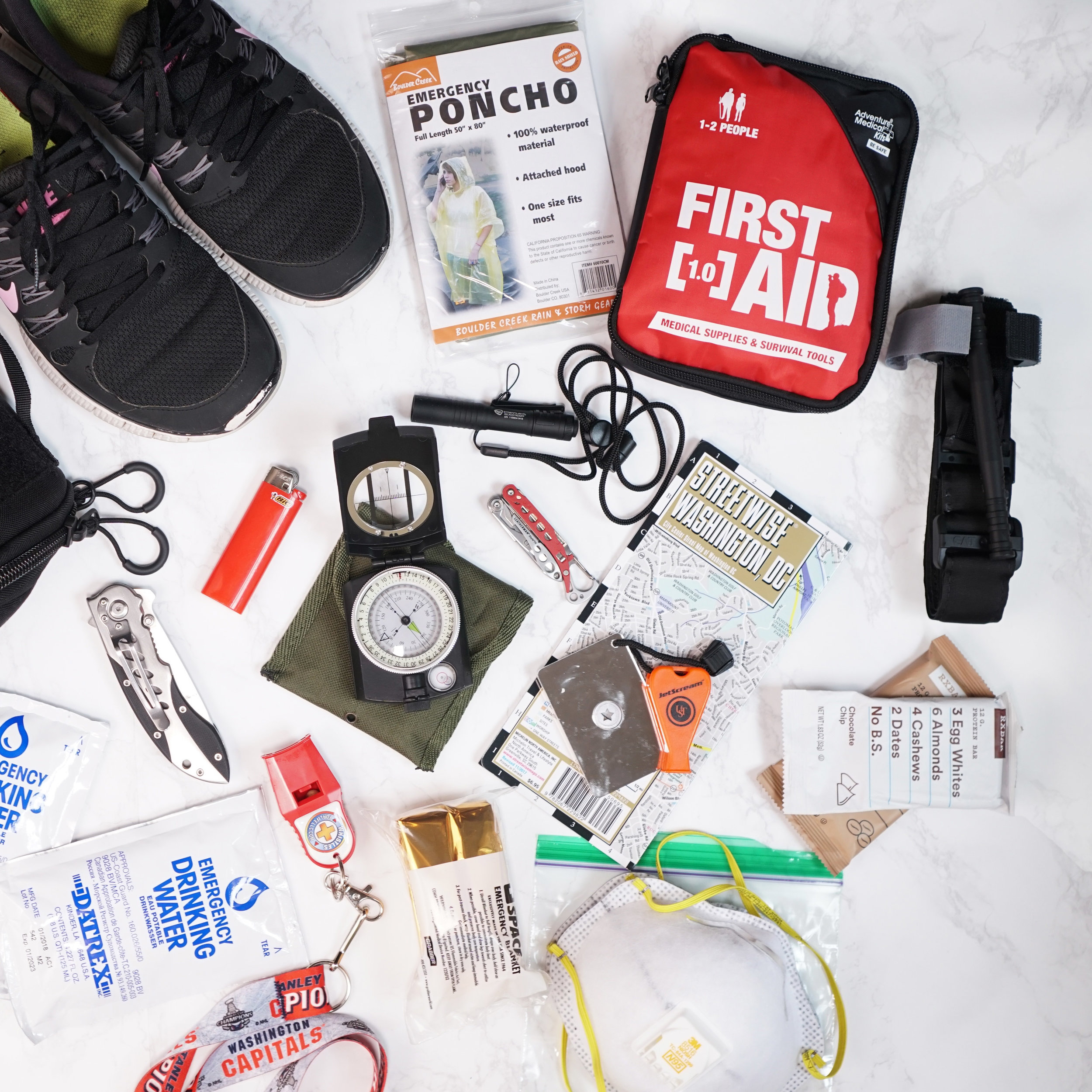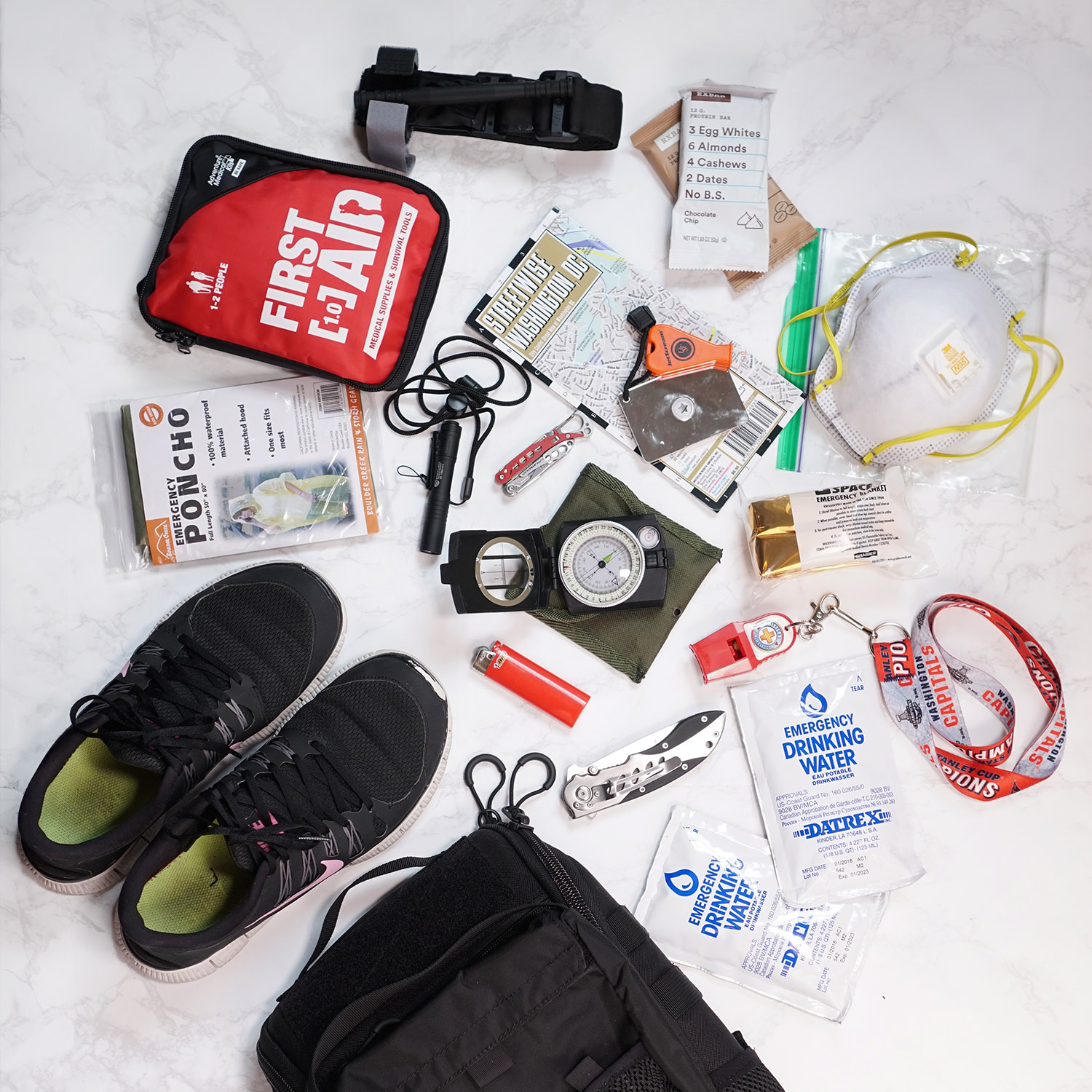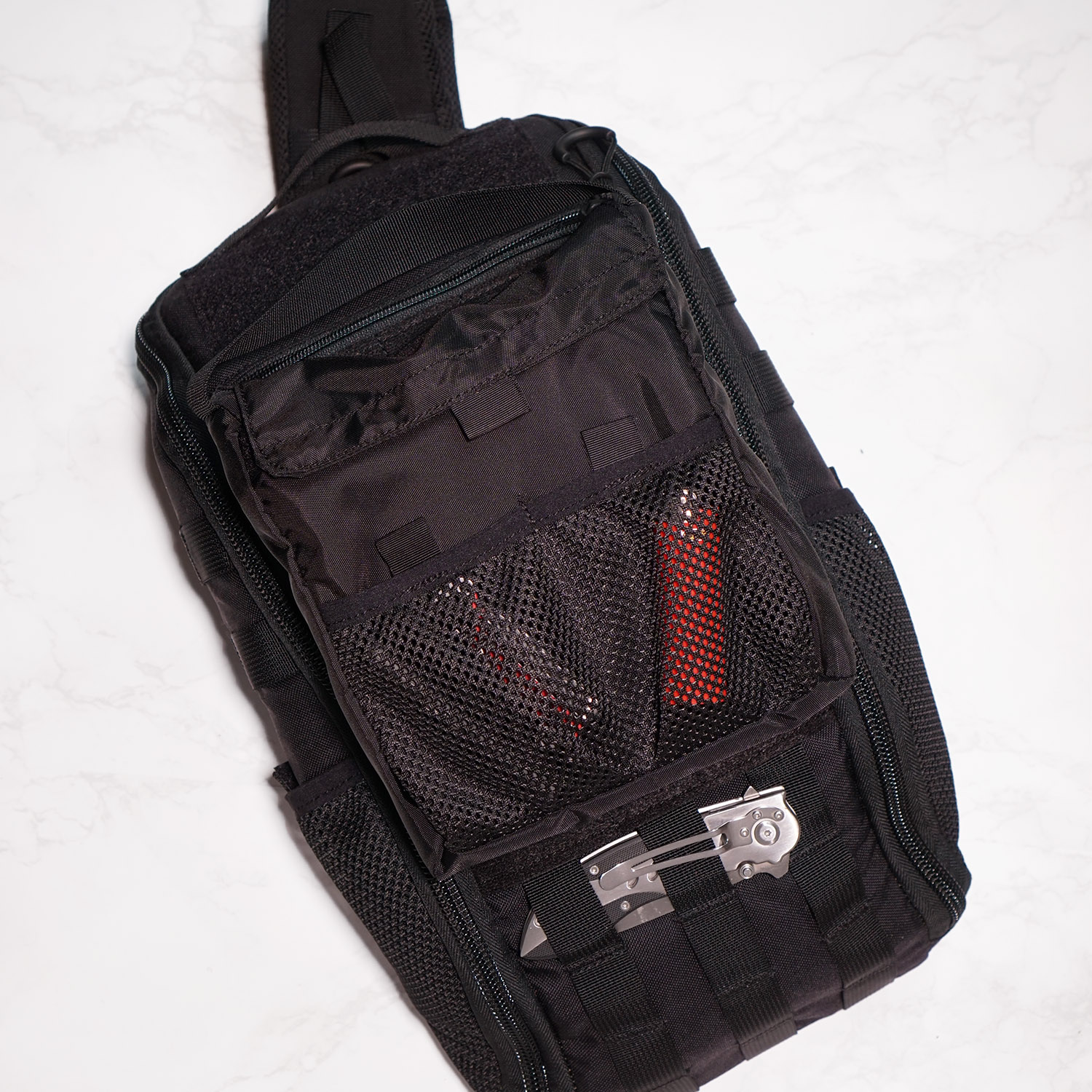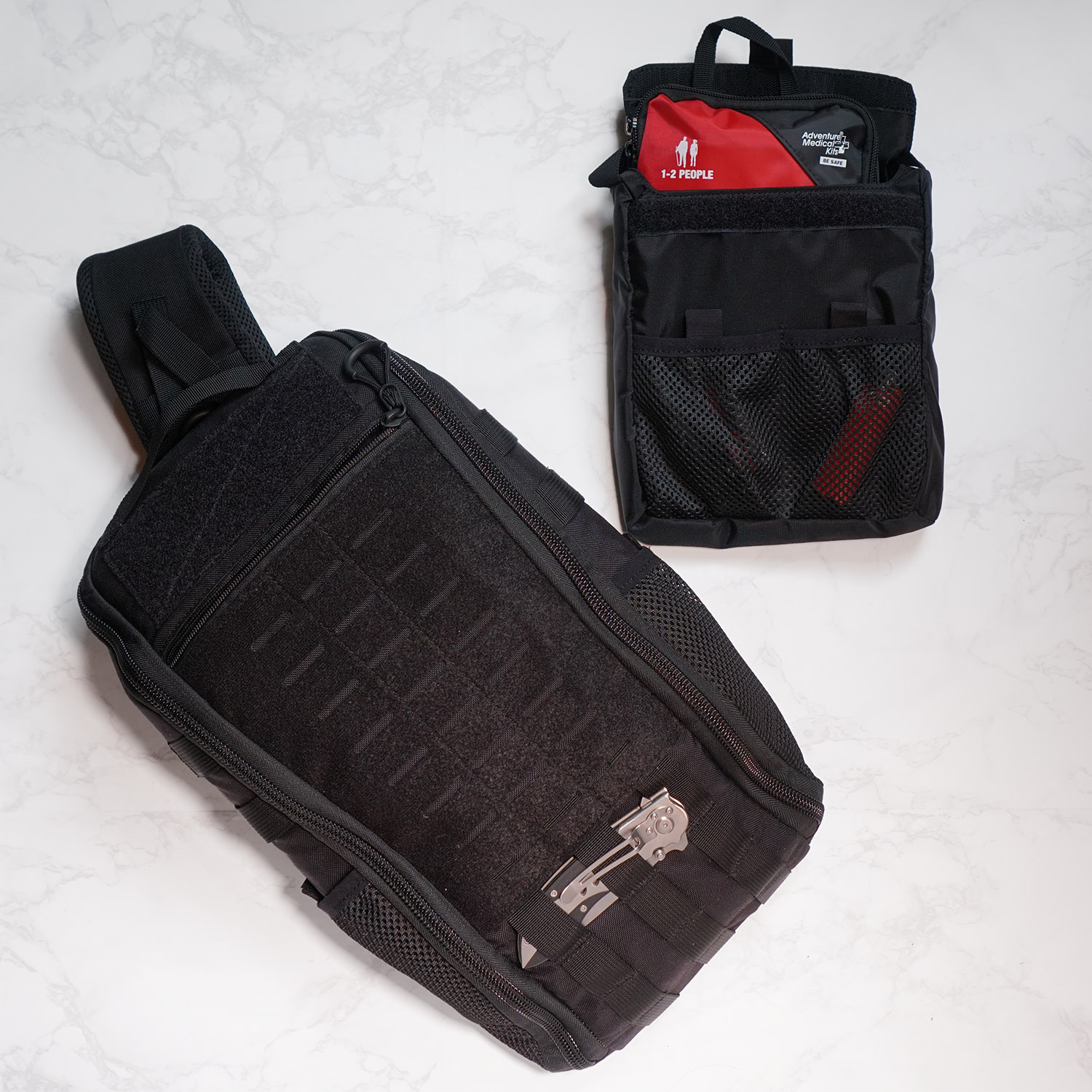Do You Have A Get Home Bag?
Let’s talk about an essential item that I think every person that doesn’t work from home needs to have and that is a Get Home Bag. We’ve talked about the importance of developing a get home plan and talking with your family about a strategy in case something should happen. But do you have a Get Home Bag?
WHAT IS GET HOME BAG?
In simple terms, it’s exactly what you think it is. It’s a bag that gets you home. The purpose of a Get Home Bag is to get you from your workplace to your home, where ideally you would have bigger, more substantial kits should you need to grab those and bug out. The Get Home Bag isn't a full-fledged survival bag. The Get Home Bag is meant to get you home safely should your normal commute be compromised. This can be anything from a variety of reasons from power outages, active shooter situations, natural disasters, or something as routine as a road closure or vehicle accident.
The Get Home Bag bridges the preparedness gap between a bug out bag and your everyday carry so you can get home to your family and other supplies. Ideally, this isn't a bag you would lug to work everyday. It's something that you keep stored at your workplace, desk, or in your office space. The bag should be small enough to hold the essentials, and placed somewhere you can easily grab it and go.
THINGS TO CONSIDER WHEN BUILDING YOUR GET HOME BAG
When building your Get Home Bag there are a few things you want to consider when determining what should go in it. Each person will have varying needs that will need to be met. However, at a minimum think about the following:
How many hours will it take for you to walk home? Not just from work but from different mile markers on your commute. Knowing how far you have to walk to get home is a great baseline for determining the contents of your bag. As a start, get directions from Google maps and select the walking icon. This will give you a good idea of what to expect.
If you drive to work, take into consideration that you might have to ditch your car and walk home.
What is the area like that you will be traveling through on your way home?
Are you passing through any unsavory neighborhoods?
Are there any rivers, creeks, or lakes that you will have to pass?
Will you be going through suburban areas, cities, or parks?
What are your physical abilities?
Do you have any physical limitations that you need to consider?
WHAT MAKES A GOOD GET HOME BAG?
The thought of building a Get Home Bag may seem daunting but it’s really an easy build so long as you have thought out your needs. What makes a good Get Home Bag depends on a few factors:
Distance: The size and contents of your Get Home Bag will depend on the distance between your home and work. If you live close to where you work, then your bag contents may differ than that of someone who has a longer commute.
Quality: Ensure the contents you pick to stock in your Get Home Bag are good quality, and from reliable brands. After all, this bag is meant to get you home safely so this isn't a place you want to skimp.
Access: Make sure that where you store this bag is easily accessible. It's fine to keep it in a locked drawer for when you aren't in your work space, but while you are there will you have the keys ready or be able to find them in time to open up the drawer?
Size Matters: Pick up something you can easily carry on you for a period of time because you will most likely be walking. You’ll want something that is compact and that will fit your essentials. If you choose a large bag, you are more inclined to over-pack it with items you don’t necessarily need.
While your distance will ultimately dictate the contents of your bag, there is a minimal amount of supplies you should carry with you. You should add to this list as it fits your needs. Don’t get caught up by including everything that the hard-core survivalists tell you that you need. I’m sure I either don’t have enough of something in my bag or am missing something. It shouldn’t be overwhelming to build your Get Home Bag. You can easily do it in an afternoon once you have your supplies. Use this as a guide to build a bag that will work for you and that you feel comfortable with given your commute and potential circumstances.
WHAT'S IN MY GET HOME BAG:
I'm fortunate to work and live in the same city and my commute is only 20 minutes by public transportation. So my bag contents may differ from yours.
Sneakers: Since I typically wear heels or flats that aren't ideal for walking home I keep a pair of old sneakers and socks in my bag so that I can change into them.
Laminated Map of DC: I know this city well and can get around easily without needing a map. However, depending on what the situation is I may need to deviate from my go-to route and should there be an issue with my cell service I have the map that I can use to help find some pathways that I might not be aware of.
Foldable Knife: Since I can't legally carry a firearm to work or in fact bring any type of weapon to work, I have this foldable blade as part of my kit for various purposes, including if I needed to defend myself.
Emergency Drinking Water: I used to keep a small bottle in my bag but kept having to change it out every few months so it wouldn't go bad and I wouldn't have any issues with plastic. The husband found these water packets that don't expire for almost two years so I keep two of these pouches on me. Again, it's enough for me to get home.
Breathing Masks: These are N95 respiratory masks and they filter at least 95% of airborne particles.
Rescue Signaling Items: Signaling Mirror and Whistle
Medical Kit: Basic first aid with along with tourniquet
Lighter, Flashlight, Compass, Snacks, MultiTool, Emergency Blanket, Poncho
OTHER ESSENTIALS TO CONSIDER:
Prescription medicine
Cash
Sunscreen
Insect repellent
Head lamp in case you are walking at night
Gloves/Hat depending on weather
More food/water
External cell phone charger & emergency contact numbers
Self-defense tools: Carry gun & extra ammo, pepper spray, blades
Stainless steel bottle in case you need to boil water
Spare set of eyeglasses if you use contacts or wear glasses
Lanyard for whistle, flashlight, or other tools. You can wear these around your neck for easy access
While I've been lucky enough not to have to use this bag yet, I have the peace of mind knowing that I have it. Take some time organizing and packing your get home bag in a way that makes it easy for you to find things and to make it the most efficient for you. You don't need to buy a special bag, an older backpack that is still in good shape is perfectly fine. Personally, my recommendation is to go with a hands-free style bag so you have more versatility. However, something is better than nothing so if all you have is an old tote bag, start with that.
I use a bag from Black Terrain (found it on Kickstarter) and like that this bag has a detachable pouch. I keep my medical kit in the pouch so I can easily get to it or grab that pouch if that’s all I need.
If you’re wondering if this something you should build or have on hand, the answer is 'yes'. Everyone needs a get home bag. There are real life events that cause a need for something like this. Sadly 9/11 is a good example. Everyone has seen the people running from the buildings and the people still wandering the city in the moments after the towers collapsed. We all heard that phone lines were down and so forth. People were choking and couldn’t breathe from the dust, and more importantly major roadways, subways, and tunnels were either closed or gridlocked. Having a get home bag on hand would’ve provided the water, filtration masks, medical supplies, and other needs to get you to a safe point. So take the time to build one because you will never regret having one. And it's better to have it and not need it, than not have one and need it.
Also, if you do drive to work think about having a Get Home Bag that solely lives in your car. As you could be out running errands and run into an issue. A simple car accident on your commute home can gridlock roads for hours.
Be sure to check out sites like Ready.Gov where they provide endless checklists, videos, and tips to help make preparedness easy.

